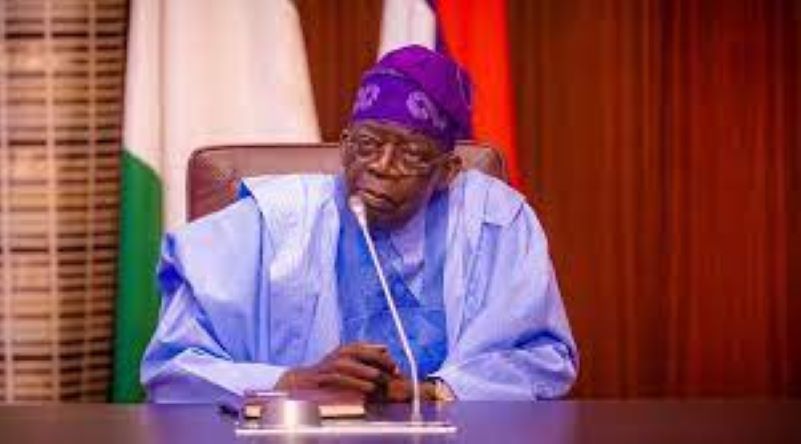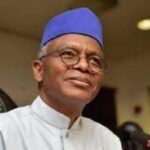The Human Rights Writers Association of Nigeria (HURIWA) has urged President Bola Tinubu to exercise caution in committing the Nigerian military to military actions without proper legislative concurrence in line with the constitution.
HURIWA in a statement by Comrade Emmanuel Onwubiko, its National Coordinator, emphasized the need to uphold constitutional checks and balances to preserve democratic integrity and national security.
Addressing concerns about potential deployments of the Nigerian Army to foreign military operations in the neighbouring Niger Republic with the aim of restoring democratic order in that country as contemplated by President Tinubu who also heads the Economic Community of West African States (ECOWAS), HURIWA underscored the gravity of adhering to constitutional safeguards, calling on the National Assembly to ensure that President Tinubu follows legal protocols in matters of national security, and to fully comprehend relevant constitutional provisions and international agreements.
The rights group maintained that President Tinubu’s engagement of Nigerian troops in warfare or conflict without the National Assembly’s requisite approval constitutes a breach of constitutional trust and could potentially trigger impeachment.
The Association stressed the paramount significance of maintaining the foundational principle of checks and balances to safeguard democratic governance.
Amidst concerns that President Tinubu may seek authorization from the ECOWAS Parliament for military involvement in the Niger Republic, HURIWA clarified the limited recognition of the ECOWAS Parliament within the Nigerian Constitution.
The Association highlighted that decisions involving military commitments require explicit consent from the National Assembly, the legitimate representative of the Nigerian people.
HURIWA pointed to Section 5 (4) of the Nigerian Constitution, which grants extensive executive powers to the President. “However, these powers are counterbalanced by constitutional safeguards, as exemplified by Subsections 5 (4) (a) and (b).
Also, HURIWA referred to Article 5, Section 80, of the Constitution, which mandates legislative authorization for the withdrawal of funds from the Consolidated Revenue Fund for expenditures.
The association argues that such authorization is equally essential for deploying the Nigerian Army to foreign military operations.
“Adopted in 1999 and ratified by all 15 ECOWAS Member States in 2001, the ECOWAS Protocol Relating to the Mechanism for Conflict Prevention, Management, Resolution, Peacekeeping, and Security outlines the mechanisms for ECOWAS’ intervention in member states’ conflicts under specified circumstances.
“This protocol establishes a framework for regional cooperation in maintaining peace and security while also safeguarding the principles of sovereignty and non-interference”.
While underscoring the legal dimensions of the issue, HURIWA also, highlighted other crucial considerations, including constitutional integrity, preservation of legitimacy, national security implications, operational aspects, and national interests.
However, HURIWA acknowledged the complexities President Tinubu faces as both the President of Nigeria and the Chairman of ECOWAS, hence, the association underscored the necessity for expert advice across legal, diplomatic, and operational/military domains to ensure decisions are in Nigeria’s best interests.



